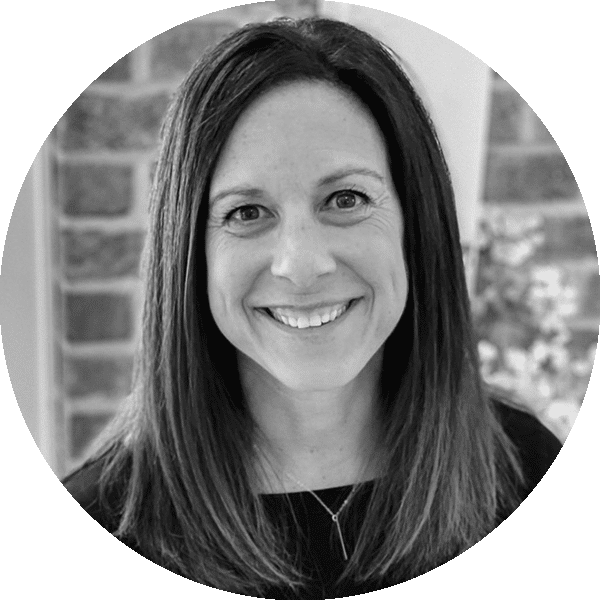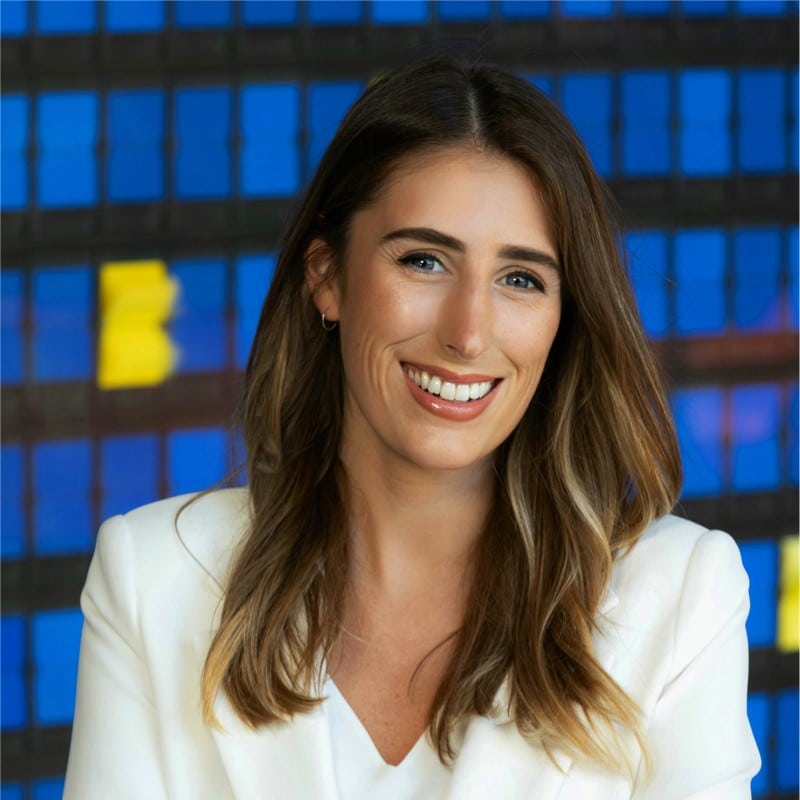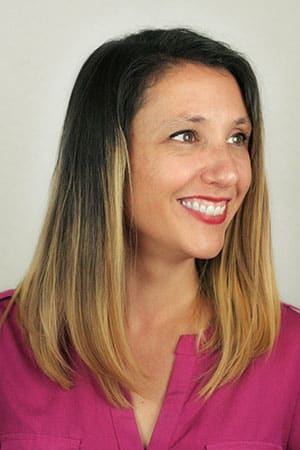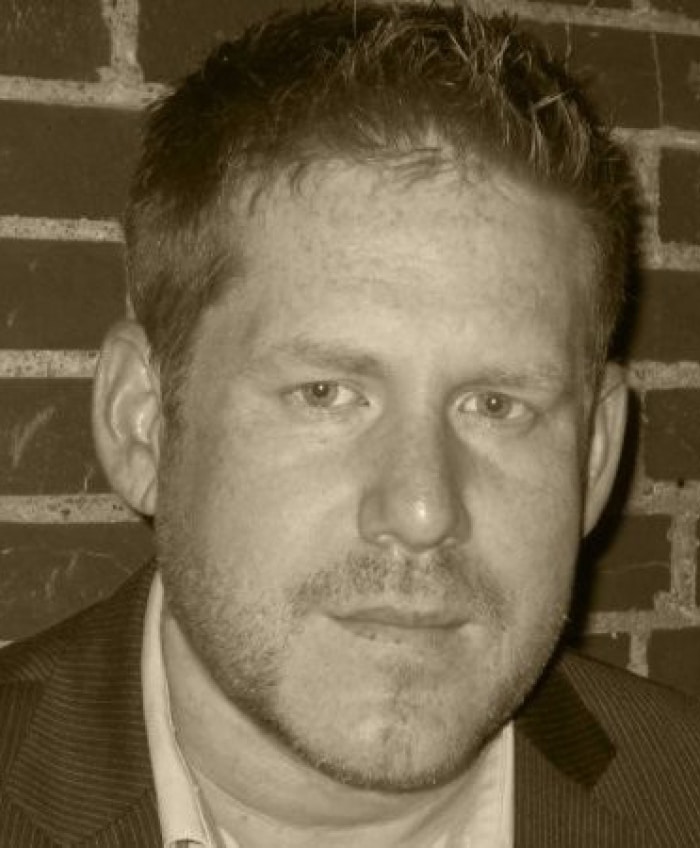Returning To In-Person Sales & Marketing Events
Cathy McPhillips
Chief Growth Officer at the Marketing Artificial Intelligence Institute

In-person sales and marketing events are a great way to connect with potential customers and build relationships. They also provide a unique opportunity to meet new contacts, network with other professionals and create community.
“A lot of people in communities are competitors. But who cares? Community is about sharing your knowledge, challenges and wins. Plus celebrating with each other.”
Tessa Burg catches up with Cathy McPhillips during MAICON (Marketing AI Conference). Cathy discusses what it’s like to host an in-person event in 2022 as well as lessons she learned along the way.
- How to build a strong community
- Getting people back to in-person events
- Driving engagement throughout the entire calendar year
- How many people in a community actually attend events
- Encouraging attendees to return to events year after year
- Decision and process for making an event in-person
- Creating content to promote return attendence
Watch the Live Recording
Tessa Burg: Hello, and welcome to another episode of Lead(er) Generation, brought to you by Mod Op. I’m your host, Tessa Burg, and today, my guest is Cathy McPhillips. She’s the Chief Growth Officer at Marketing AI Institute. Cathy, thanks so much for joining us.
Cathy McPhillips: Thank you for doing this. I’m glad this all worked out today.
Tessa Burg: Yes, so we are live here at the MAICON Conference. Did I say that correctly?
Cathy McPhillips: You did. So, we are sitting across from each other right now, so we’re going to try to not look up at each other and look down at the camera.
Tessa Burg: Yeah. Yeah, so for those of you listening, it’s probably also going to feel a lot more like a conversation, because we’re together, and that is going to be a part of what we talk about today, is Cathy’s career has focused on building communities, getting people to events, leveraging the entire calendar year to start to drive that traffic and interest in the relationships that we know help with conversion and creating a sense of not just community, but like a following and ownership around your product, service, and brand. So, Cathy, thanks so much for being the guest. We’re going to jump right into it. First, tell us a little bit about your background and career and what brought you to MAICON.
Cathy McPhillips: So, I have a degree in Journalism from Ohio University, and I knew I wanted to get in marketing in some capacity. I love art, I love math, and marketing advertising seemed like a real good balance of that. So, I started out of college with two agencies in Cleveland, and in my second agency, I decided to go off and do my own thing for a while. So, for about 13 years, I had my own consulting business where I focused on restaurant marketing, because that was one of my first clients. And I found my niche with that, so restaurant service sector, and then just people in the community that I knew just had asked me to help them with some things. And then I met a man named Joe Pulizzi on Twitter, and he was also here in Cleveland, he still is in Cleveland, at the Content Marketing Institute. So, I was there for about nine years. And about 15 months ago, I came over here to the Marketing AI Institute, which is focused on helping marketers leverage the power of artificial intelligence to help them do their jobs better and help them focus on things they really love.
Tessa Burg: So, to give people a sense of the size communities you’ve built, where did content marketing world start, and how many years did it take to get it to like a larger number, a significant community number?
Cathy McPhillips: Yeah, so I started in 2012, and I honestly don’t remember the size of it when I started, but it was smaller, obviously. And then when I left in 2021, mid-pandemic, we were over a quarter of a million people in various networks. So altogether, there were over half a million, but I’m sure there was a lot of duplication between the communities. But our Twitter community, which was the strongest, I think we were at 300,000 something, so it got pretty big. And obviously everyone wasn’t super active, but we did have a very big segment of the audience who are now, I would say, some of them are best friends, and they’re living across the world from each other.
Tessa Burg: That’s amazing. So, one of the things that we were talking about is, when you build this community, how many of them actually then translate into an event? So, we have clients who are doing sales conferences or who partner with their distributors and try and get a bunch of their potential customers to come in to see the demo of their products, whether it’s a pipe or a widget or an ingredient or food. So, what did that translation look like for you of the number of people in the community versus how many people actually came to the conference?
Cathy McPhillips: So, to put it in perspective, if we had 300,000 people on Twitter that were following us, 4,000 came to the event. So, it was a small percentage, but a meaningful percentage. And it was the right people. It was the people that… You can’t expect every single person in your community to convert to a sale, to convert to an event attendance, to convert to anything. Some of them just might read an article. Some of them might not even read anything. They just like you and your community, and they are just inactive. And you just need to realize that that’s just probably the majority of your folks, but you’re going to have those people that are going to do anything you put out there. They’re going to follow, they’re going to like, they’re going to buy.
Tessa Burg: Yeah, I would say 4,000 is an awesome number for an event. But I think that’s a great way to frame it for listeners that it was 300,000 people, and the revenue you generated, though, from 4,000 is incredibly significant for the event itself.
Cathy McPhillips: For sure.
Tessa Burg: So then, how do you maintain that momentum so that you’re keeping those who are engaged, not engaged? Did you see a lot of people come back year after year to that event?
Cathy McPhillips: Yeah, I think one thing that we did really well as a team, and it all certainly wasn’t me, was we made sure that they saw… They felt valuable. We had a wall of fame, so if you came back every year, if you were seven-, eight-, nine-year attendees, you got your name on a wall, and people wanted their name on the wall. It was just real fun and easy things to do. A lot of times, community members would take over. They would say, “Could we hold “a networking event at a brewery?” “And could we do… “And what could we do to help you?” It was more about… We didn’t even need to be involved. Our community was just happening without us. So that was really exciting. And I think just always providing value for them and making sure that what we’re giving them is the ability to network with each other and the ability to… We wanna enable them to want to be there, to find things that we’re doing. Sorry about that. And so I think just enabling them to have resources, enabling them to use us, to ask us for questions, to talk to each other.
Tessa Burg: So we are at MAICON, and right now, some things are being cleaned up in the background, which is fine. But tell us a little bit about how you’re taking some of those learnings from content marketing world and that community and applying them to something still in the marketing realm, but a different audience, potentially, totally new people, a different reason for joining a community, which is AI and marketing.
Cathy McPhillips: So, this is new to me. And I think what I like best about this community right now is that I’m the target audience for our company. It’s marketer that has been around for a little while, or not. I mean, there are a lot of very young, new marketers in our community as well, which is wonderful. But there are a lot of marketers who are like, “Okay, I’ve been around for a while. “I know how to do digital marketing. “I know how to do this. “I’m learning all that. “What’s this AI thing, and why does it matter to me?” So, my pitch to this community is we got to figure this out together. And there’s so many things that we’re learning, we’re testing. If I use a tool and I love it, I want you to use it too, because even if we’re competitors, you’re not me, so we’re not going to do the exact same thing. But if I’m finding value in something, it’s saving me time, it’s saving me resources, it’s saving me money. Why would I not tell you about it? And that’s what I love about communities is that when I was at CMI, when I’m here at the institute, it’s like a lot of the people that we’re in the community with, we’re competitors. But like, who cares? That’s what a community really is about. It’s about sharing your knowledge, sharing your… Your challenges, but sharing your wins and wanting to celebrate with each other. And it’s just like, it sounds really cheesy, but when you build that community with each other, it’s like, you get excited. And that’s what you want to create, because then when you want to go have them do something else with you, they’re more likely to, because they want to support you, because you’ve been so supportive of them.
Tessa Burg: Yeah, no, it is really powerful. And I will say, being here in person with some of the people that you have already started to build a community with has been an amazing experience. No one’s coming in like super cold. On the first day, there were some workshops where we actually sat down and looked at our challenges as marketers and apply to frameworks how we can use AI to address those challenges. But I know the decision to be in person was a big one. And last year, we actually did a couple podcasts on virtual events. Tell us a little bit about why you decided and what that process looked like to get everyone here in person.
Cathy McPhillips: Well, I think the process is that by 2022, none of us wanted to be in a virtual event. We really wanted to be together. And we knew that this was going to be a smaller event than we hoped for. We were hoping for 3, 4, 500, and we’re about 250, which is great. We’re just so happy that we’re together. And we just said, “We don’t want to do a virtual event again. People don’t want to do a virtual event again, and we just want to be together, and we’re prepared to just have a smaller event, and a more intimate event, but I love it, because there are people we haven’t seen in two years, there are people that have been with the company 15 months, and there are people I met in my first month online that I’ve never seen in person before. And it’s just like been that feeling of like, “Oh my gosh.” It’s just been so wonderful to see people, and it’s just been really nice. So, we did talk about doing a hybrid event. So, for anyone on here that’s watching or listening, that you know that, Do we do a hybrid event? Do we do it in person? Do we ever do it virtual? Hybrid events are basically doing two events. So, we decided not to do a hybrid event, because one, money. It’s expensive to hold events, whether it’s virtual or in person. And we just really wanted to focus on the in-person experience and all of us being together again.
Tessa Burg: Yes, that is a tough decision. And I think a subject that came up last year when we talked about virtual events, one of our guests said they think they’re going to do the event virtual all the time, because it did save some money, and they were able to produce content. But something I’m feeling while I’m at this conference is, I’m going to go back to my business, and I’m going to talk about this, and I’m going to get more people here. And I will say, out of all the virtual events I attended last year, I didn’t bring more people. Like there really is something powerful and more connecting about being in person. So how can you still get the benefit at virtual event of all that content being created, and are you doing that here? Are you creating content while this event is going on that you can use to tee up next year?
Cathy McPhillips: Yep, we have people in every single room pulling quotes from speakers, taking photos. We use photos. We’ve used the photos from 2019 for three years because we’ve been preparing for this in-person event. So, we have the photographer… I’m like, “Get me lots of pictures,” because I use them in everything that we’re doing, and we want to have those resources. But we’re using the content from the sessions, from the keynotes, photos from the event, attendee stories, things when I’m talking to people. We use all of that content in blog posts, in our promotions for the event, on social media, looking back at… In a month, I’m going to be like, “I miss everybody. Let’s take a minute and talk about the event. And here’s some things that we … Now that we’ve had a minute to process things, “here’s some things we learned. And some of the conversations we hear at our networking events, or just talking to people passing in the hall, and we hear their pain points, we hear their challenges and what they’re looking for when they ask a question. And I’ll go over to Mike Kaput, our Chief Content Officer, and I’m like, “Here’s 10 blog post ideas.” So just having those conversations, it’s like we’re just building up this whole library of, Here’s all these things. Like, here’s our calendar for the next 12 months. We figure that out now, because now we’re seeing what people need, what they want, what they’re like, “Oh my gosh, this session was the best session. I wish you talked more about this.” So, this gives us the opportunity to listen and give our customers what they need.
Tessa Burg: Yeah, and I’ll also say that you’re hosting this event in Cleveland, which is both of our hometown, but for people traveling in, it is more affordable. Like food here is cheaper. Hotel rooms are cheaper. If you’re going to come to an event and you want to start leading your company through the digital transformation process, MAICON is the perfect event.
Cathy McPhillips: It is a really good event. I came in 2019 as an attendee, and I left there… And I really did it because I was supporting Paul, but I left there and I was like, “I need all of this stuff right now.” Like, it just was… It’s so valuable. And once you come to MAICON, this is not a MAICON pitch, but it kind of is, but it just clicks, like get past the word “artificial intelligence” and just learn about doing your job smarter, and learn about how a technology can help you focus on things you really love. Like, I don’t love versioning out 17 versions of an ad, or I don’t like writing pages and pages and pages of social posts. I can have technology help me with that, and then I can focus on things like spending hours on the phone to talking to customers and using my time just in a better way, being more creative, being more strategic, and just all that minutia, the data-driven stuff, the repetitive stuff, that there are tools just to help you do that.
Tessa Burg: Yeah, I think one of the areas I’m most excited about applying AI in marketing is really on the reporting side. Like measuring the stuff we do can take so long, and what that frees you up to do is then be more creative. And I feel like that’s what we’re all craving as marketers. It’s what got us into marketing, is the idea generation. And I feel like, to your point, I’ve seen a lot of light bulbs go off. At the same time, I’m like, “Why aren’t more people here?” Like where is that sense of urgency that we need to be leveling up and be more creative, especially in a time when we’re facing inflation, and lack of substitutes, and there’s a lot of brand abandonment. Like now, I feel like, is the time to invest in tools that open up that time space to be creative. What is some of the feedback that you’re hearing of people making that in-person trip and getting to such an important conference?
Cathy McPhillips: I think right now, it’s just a hard time all around. And we knew what we were getting ourselves into, we knew we were in an uphill battle, but I think we got the right people here, and I think this goes back to community. There are people here that are like, “We are all in. We are so excited for next week. We are so excited to get back to the office. We brought our team of five people, we’re all here.” And I’m like, “Okay, you’re who I’m going to stay in touch with for the next 12 months, “and you’re the person I’m going to… I want to elevate you.” So, I mean, my big thing is I want to help you. Of course, we’re in a business, so we need to do things that we’re going to make some money off of. But that can’t be where I start. Where I start is I want to build these people and help them, enable them, to do this themselves, enable them to find the right technologies, do like a matchmaking thing where like, “You have a problem, I know who you can call.” Like, let me give you all these free resources, because then in 12 months, they’re going to be like, “Okay, we got to go back, because I want see what else is new.” So, the end goal shouldn’t always be the sale, but nurturing the relationships for the next 12 months is what I’m going to focus on, because I want people to succeed. And I don’t want to ask them for something, I want to give them something. And I think that’s the business model that we’re doing is like, we just want to build this thriving community of folks who are doing it, and I want to find those people that can help my community grow because they’re seeing it work.
Tessa Burg: Yeah, I think that is such an important point, that it has to start with that nurturing first, and that real relationship building, before you go in for the sale. So that is all the time that we have, Cathy. Thank you so much for being our guest.
Cathy McPhillips: You’re welcome.
Tessa Burg: And I think, everyone, if you’re planning a sales event, if you’re trying to get more customers coming back to your demos for your products, I hope you’ve found some great ideas to make the most of that event, to generate content, and to do things every day of the year to keep that community building, and then get them to your in-person event for those real connections. Cathy, if people want to reach out to you or find you, where can they find you?
Cathy McPhillips: I’m on LinkedIn every day for way too long, just “Cathy McPhillips” on LinkedIn, “C McPhillips” on Twitter. Those are probably two best places. And our website is MarketingAIinstitute.com. And if you’re doing an event and you have questions, please ask, because I’m more than willing to share anything I know.
Tessa Burg: Awesome. Thanks so much for joining us, and if you want to listen to more podcasts, visit tenlo.com, click on “podcasts.” We’ll soon be going over to the Mod Op website, and that’s at M-O-D-O-P dot com.
Cathy McPhillips
Chief Growth Officer at the Marketing Artificial Intelligence Institute

Cathy McPhillips is the Chief Growth Officer at the Marketing Artificial Intelligence Institute, overseeing product growth, marketing, sales and customer experience.
McPhillips was VP of Marketing at the Content Marketing Institute and their flagship event, Content Marketing World, for almost a decade. She owned her own strategic marketing consultancy focusing on nonprofit and service sector marketing and media, and was media supervisor at Wyse Advertising in Cleveland. She was part of Ohio University’s Jerry L. Sloan Visiting Professionals in Public Relations program, and regularly guest lectures at area colleges and universities.
McPhillips was named a Folio: Top Women in Media, a MarTechExec 50 Women You Need to Know in Martech, and currently sits on Ohio University’s College of Business Marketing Advisory Board.


